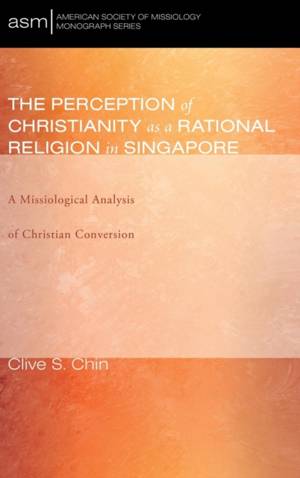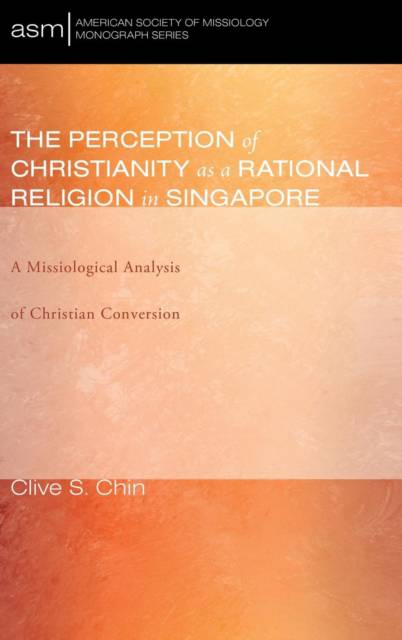
Bedankt voor het vertrouwen het afgelopen jaar! Om jou te bedanken bieden we GRATIS verzending (in België) aan op alles gedurende de hele maand januari.
- Afhalen na 1 uur in een winkel met voorraad
- In januari gratis thuislevering in België
- Ruim aanbod met 7 miljoen producten
Bedankt voor het vertrouwen het afgelopen jaar! Om jou te bedanken bieden we GRATIS verzending (in België) aan op alles gedurende de hele maand januari.
- Afhalen na 1 uur in een winkel met voorraad
- In januari gratis thuislevering in België
- Ruim aanbod met 7 miljoen producten
Zoeken
The Perception of Christianity as a Rational Religion in Singapore
A Missiological Analysis of Christian Conversion
Clive S Chin
€ 73,95
+ 147 punten
Uitvoering
Omschrijving
This book evaluates the common criticism that Christianity in Asia is westernized. Since the 1980s, Asian evangelical theologians and missiologists argue that the intrusion of Western theology is responsible for the Western and, hence, alien expressions of Christianity in Asia. Yet, in Singapore, the number of Christians has increased over the last few decades. Empirical evidence demonstrates that younger Chinese Singaporeans convert from Buddhism or Taoism to Christianity partly because they perceive it as a "rational" religion over Buddhism or Taoism, which are viewed as "irrational" or "superstitious." Not only do many converts favor Christianity as a rational religion, but they do not regard Christianity as a Western religion at the point of their conversion. What accounts for those recent developments? This study explores the processes of modernization and globalization as important factors, impacting religious change in Singapore. Personal, contextual, and structural elements actually influence one's religion of choice. In facilitating effective mission, one must qualify the use of the categories, "Asian" and "Western," because religious and cultural boundaries overlap. What matters most in missiology is discerning how the gospel of Jesus Christ engages the self-understanding and lived realities of ethnic and religious others in diverse cultural settings.
Specificaties
Betrokkenen
- Auteur(s):
- Uitgeverij:
Inhoud
- Aantal bladzijden:
- 244
- Taal:
- Engels
- Reeks:
- Reeksnummer:
- nr. 31
Eigenschappen
- Productcode (EAN):
- 9781498298100
- Verschijningsdatum:
- 23/03/2017
- Uitvoering:
- Hardcover
- Formaat:
- Genaaid
- Afmetingen:
- 152 mm x 229 mm
- Gewicht:
- 494 g

Alleen bij Standaard Boekhandel
+ 147 punten op je klantenkaart van Standaard Boekhandel
Beoordelingen
We publiceren alleen reviews die voldoen aan de voorwaarden voor reviews. Bekijk onze voorwaarden voor reviews.









